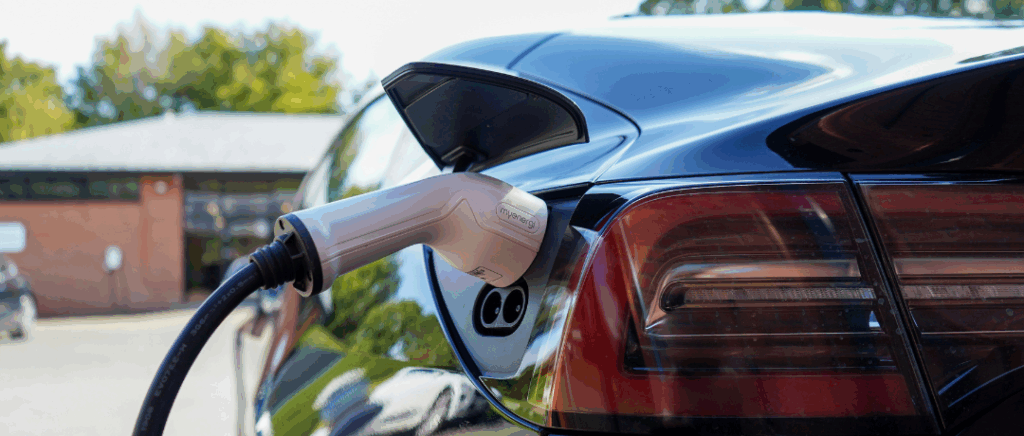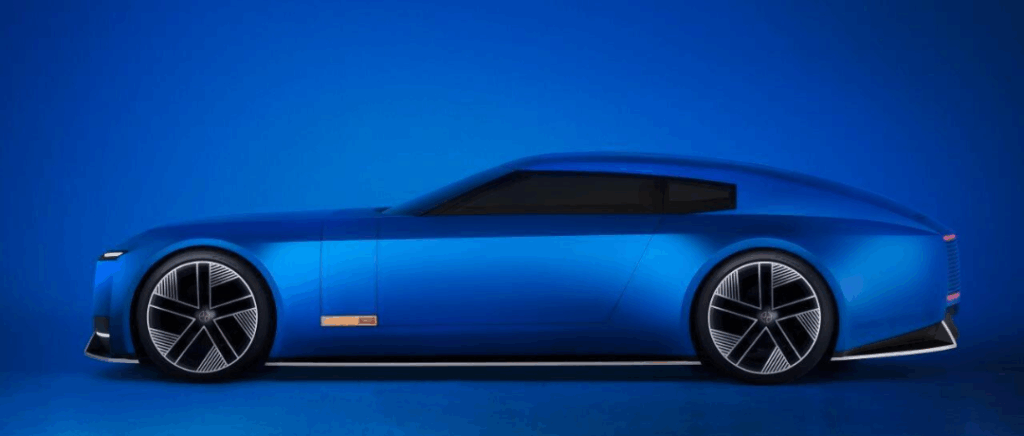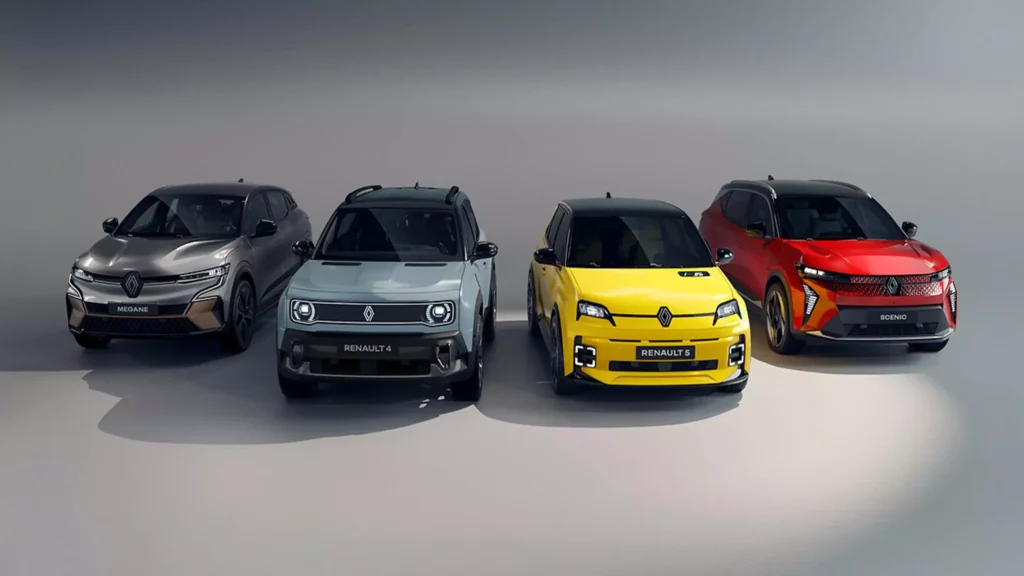Monday to Friday
9am - 12.30pm - 2pm - 7pm
Why install electric vehicle charging points in your gîte?
Would you like to take action on all fronts to make your B&B more environmentally friendly? Sustainable mobility is one of the areas of development that can not only help you achieve this objective, but also build customer loyalty and enhance the value of your accommodation.
Electric vehicles have been gaining ground for several years now. It is estimated that by 2030, more thanone new vehicle in three will be a rechargeable hybrid or 100 % electric vehicle. This acceleration will be marked by end of sales of internal combustion vehicles in 2035on a European scale.
As establishments open to the public, gîtes have every interest in equipping themselves to offer the best possible service to their customers. The provision of recharging points is one of those sustainable projects that directly generate added value for users. And accommodation managers stand to benefit in many ways.
Choosing to reduce the environmental impact of your tourist accommodation can have many benefits in both the short and long term.
Attracting customers who are increasingly concerned about the environment
The Harris Interactive polling institute has carried out a study on sustainable tourism for Voyages SNCF and the Routard website. The results are convincing: "90 % of French people say they are generally careful to respect the environment and the lives of local people when they travel, demonstrating the appeal of the principles that guide responsible tourism".
This study shows that ecological concerns are part of the criteria for selecting accommodation. They are also likely to influence the purchasing decisions of some travellers and, by the same token, become a selling point. Gîtes are a particularly good example of this eco-responsible approach. To stand out from standardised hotel chains, you have certainly built your offer around sustainable values.
Located in the heart of the countryside, as close as possible to nature, gîtes offer the promise of authentic holidays, incorporating more local consumption. In this sense, they are above all sought after by tourists eager to "get back to basics". So promoting respect for the environment is perfectly in tune with your core target.
Improve the visibility and referencing of your establishment using labels
More French and international travellers are also paying attention to the labels awarded to establishments that integrate eco-tourism issues. Among the most common are :
- the Green Key,
- l'European Ecolabel,
- the Ecogîte label,
- the label Acting for Responsible Tourism (ATR).
Having one or more "green labels" shows that you've taken a number of steps to optimise your approach to the environment: reasonable energy consumption, use of organic or natural products, eco-friendly furniture and bedding, waste reduction and recycling, and promotion of local producers. At the same time, there's another way of confirming your commitment to the environment: theinstallation of charging stations for electric vehicles.
Optimising the attractiveness of your establishment
The installation of recharging points in the car park of your accommodation meets a growing demand from your visitors.
For proof of this, just take a look at the platforms that list gîtes and chambres d'hôtes, such as Gîtes de France. It offers search by criteria to make it easier for users to find an establishment with one or more charge points.
Logically, electric car drivers who travel to their holiday destination with their vehicle will prefer establishments with charging points. Many have neither the time nor the inclination to look for a nearby station during their stay. For gites in rural areas with poor supplies, the issue of recharging may even become a real concern for holidaymakers and, ultimately, for their families, influence their purchasing decision.
Making recharging points available to the public can also enhance the brand image of your establishment by demonstrating that you have translated your ecological commitment into concrete action. In other words, this approach will also have a beneficial impact on tourists who come to your gîte without their car, but who are sensitive to respect for the environment.
Worried about a disproportionate investment? That would be forgetting the democratisation of electric vehicles. Today, the installation of a recharging infrastructure meets the needs of only some of your customers. But tomorrow, it will undoubtedly concern the majority of them !
Increase your visibility
As a gîte manager, you're no doubt aware that it's essential to work on your visibility to stand out from the competition, especially in areas with high tourist numbers. But advertising can be very expensive.
Did you know that the simple fact of having charging stations can increase brand awareness at no extra cost?
Places equipped with recharging stations can be listed on applications dedicated to electric vehicle drivers. Among the most widely used are Charge Map or Plugshare. The application EVHotels specialises in listing hotels equipped with charging points for electric vehicles. Booking.com, the leading accommodation booking platform, also includes the availability of charging points in its search criteria. geolocation tool.
Increase income by monetising top-ups
Offering a chargeable top-up to customers and/or visitors is a good way of generating additional income and making your facilities more profitable.
Recharging allows you to recoup the investment you have made in acquiring one or more charging points. In reality, there are several business models that can be adapted to suit the positioning of your establishment and your objectives:
- La segmentation by user Charging stations: if you want to make the presence of charging stations in your gîte a selling point, it may be a good idea to offer this service to your customers and charge it to other users. In this way, only visitors who simply wish to recharge their vehicle without booking a room in your establishment will be charged.
- La personalised billing (for your customers) Charging: this billing model, which is better suited to smaller establishments such as bed and breakfasts, involves making an RFID badge available to customers who want to charge their electric vehicle. Each badge is associated with a guest or a room number, so access to the charging point at your B&B is secure. All that's left to do is to bill the recharging service as part of the bill at the end of the stay.
- La billing by time or kWh for all users: each billing model has its advantages. With kWh billing, drivers only pay for the energy they actually use. However, there is no real incentive to leave the chargepoint immediately. If you charge by charging time, you'll have a higher turnover rate, so you'll be able to generate more turnover. But this method of charging is less equitable, because drivers of slow-charging electric vehicles are penalised.
Good to know: There's nothing to stop you changing your billing model. You can start by opening your kiosks free of charge to gain extra visibility, and then opt for targeted or generalised rebilling.
Between welcoming your customers, looking after your gîte and the administrative tasks involved in your business, you're worried that you won't have time to deal with the issues involved in managing and invoicing refills?
Beev offers you a turnkey billing tool to manage your chargepoints remotely, from an online platform. Discover the how the supervision service works and its benefits.
Which electric charging points should I choose for my gîte?
It is essential to right-sizing your project to offer a value-added service to its customers. This stage is based on an analysis of their expectations. Most travellers want to have their vehicle at their disposal quickly so that they can indulge in tourist activities (visits to the surrounding area, gastronomic discoveries, etc.). Others just need a top-up for the return journey. Whatever the case, reduce their waiting time is one of your objectives as a hotelier.
In this context, you need to find the best compromise between user comfort and investment costs. It also depends on the accommodation capacity of your gîte. If you only have a few rooms, a single charging point with one or two charge points will be more than enough.
In terms of power, an 11 or 22 kW IRVE will cover your customers' needs perfectly.
For example, an 11 kW terminal provides a autonomy 54 km on average after an hour's charge (for an electric vehicle with an average consumption of 21 kWh/km). This range increases to 108 km for a 22 kW charging point (for the same charging time).
How much will it cost to install a charging point in your gîte?
While powerful charging points for ultra-fast charging are fairly expensive (especially those powered by direct current), the price differences between 7.4 kW, 11 kW and 22 kW charging points are fairly small (between €600 and €900). There are, however, price differences between brands and features. A connected bollard equipped with RFID technology generally costs more than a non-connected bollard, but offers greater flexibility in terms of managing access and billing.
However, the cost of installation can also have an impact on the overall cost of the project. Certain technical criteria can vary the cost, such as whether the electrical installation needs to be brought up to standard, or the distance between the charge point and the electrical panel, which may require civil engineering work.
To get a clearer idea of the cost of installing a charging point in your gîte :
- request an appointment with one of our advisers to help you estimate your project or
- download our free guide to installing charging points in hotels.
Hotels and gîtes: subsidies for installing IRVE charging stations
Unfortunately, the Advenir no longer offers the premium for the installation of charging points open to the public in private car parks from 30 June 2023.
Find out about your financial aid with our simulator!
Need to find out about financial assistance for your recharging solution? Use our project simulator to find out about your subsidies to reduce the costs of buying and installing charging stations.
However, you should be aware that there are grants available from local and regional authorities. For example, the Grand Est region has set up a dedicated subsidy for tourism professionals who make their recharging infrastructure available to their customers. The amount is 50 % of the project amount (acquisition and installation), capped at €1,500 per charge point.
Are you convinced by the benefits of installing a charging point in your gîte? Tell us about your project by detailing your requirements using our form. An expert will contact you within the hour!
If you would like to find out more aboutsupport for the installation of charging points for businesses in 2024For more information, see our article on this subject.
































